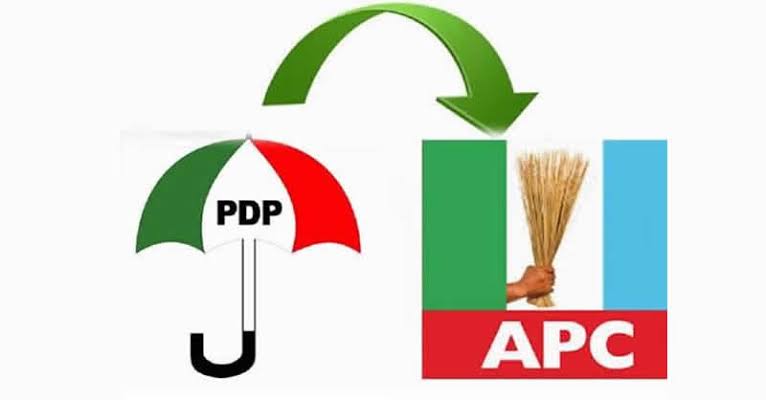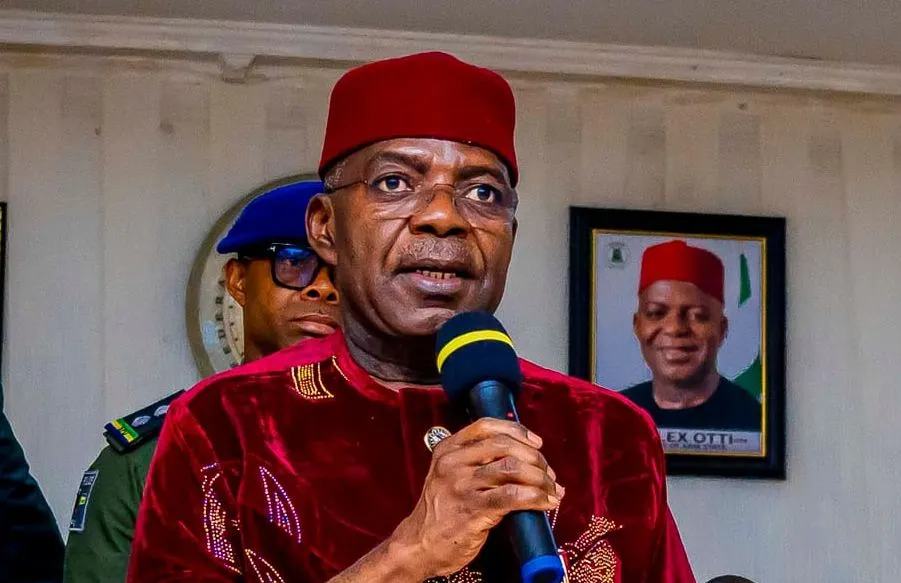News
South-East Disco to commence mass disconnection notice on June 10

By Francesca Hangeior.
The Enugu Electricity Distribution Company has threatened to embark on disconnection of electricity supply to its indebted customers across the South-East geopolitical zone.
A statement on Friday, signed by the management and issued by its Media and Communications Manager, Emeka Ezeh, indicated that the exercise would commence on June 10, adding that the move became necessary considering the huge unpaid electricity bills and accrued arrears.
The EEDC distributes electricity to the South-East states including Anambra, Imo, Enugu, Abia and Ebonyi.
The statement read in part, “The Enugu Electricity Distribution Company Plc wishes to notify her customers with outstanding electricity bills that effective from 10th June 2024, the company will commence the disconnection of electricity supply to these indebted customers.
“This exercise has become necessary considering the huge unpaid electricity bills and accrued arrears, which has consistently put the company in a precarious revenue deficit position, making it difficult to meet up with its power purchase obligations.
“For EEDC to continue providing services to its esteemed customers, it is pertinent that electricity bills, which are for energy already consumed, are paid in full. If this is not done, it will be difficult for the company to keep up its operations to serve customers and enhance the quality of service.
“Some of the indebted customers include, Enugu State Government, Ebonyi State government, Anambra State Government, Abia State Government, Imo State Government, Innoson Technical & Industries, University of Nigeria (Enugu & Nsukka Campuses), Nigerian Bottling Company Ltd., Nigerian Army, Nigerian Police Force, Nigerian Airforce, Nigerian Navy, Nigeria Railway Corporation, National Drug Law Enforcement, UNTH, Enugu.
“Ebonyi State University, Coal Corporation Quarters, Federal Secretariat & Establishment, GMO Rubber Division, Nnamdi Azikiwe University, Awka, Ebonyi State Govt. (Ecumenical Centre 1), Nigeria Prisons Training School, Central Bank of Nigeria offices, M/S Concorde Hotel, Owerri, and Federal Teaching Hospital, Abakaliki.
“Others are Enugu High Court, Reliable Steel & Plastic Ind. Ltd., Jilnas Industries, BENGAS Nigeria Ltd., CIFO Petroleum Ltd., STANEL Filling Station, Highlift Pumping Station, FINOC Industries Ltd., Aluminium Extrusion Industries Ltd., VIN VAL Limited, Local Government Council offices, Saint Davids Porter Nigeria Ltd., Gees Denver Company Limited, The Federal Controller of Works, Hospitals Management Board, and DONLINK Plastic Industries.”
The organisation, therefore, appealed to the affected customers to endeavour to clear their arrears on or before June 10, 2024, to avoid having their supply disconnected.
It stated that the notice applied to all categories of customers (Maximum Demand and Non-Maximum Demand) that are indebted to EEDC, adding that for further enquiries, customers should call 08150824157.
News
Just in: Osun PDP receives defectors from APC, others

The Osun State Chapter of the People’s Democratic Party (PDP) has received thousands of decampees from the All Progressives Congress and other political parties into its fold.
The decampees, who are mostly from the Omisore Youth Support Forum (OYSF) joined the party at a ceremony held at party secretariat in Osogbo, the capital of Osun State, on Wednesday.
The were received by the Chairman of the PDP in Osun, Hon. Sunday Bisi, former Deputy Speaker of the House of Representatives, Lasun Yusuff and other party leader.
While receiving the decampees, Bisi renamed the group as Adeleke Youth Support Forum (AYSF) as they declared their support for Adeleke’s 2026 re-election bid.
One of the leaders of the decampees, Mr Francis Fasogbon said they were “inspired by the good governance delivered by Governor Ademola Adeleke”.
News
Hon. Dennis Agbo Resigns From Labour Party

Hon. Dennis Agbo, representing Igboeze North/Udenu Federal Constituency in the 10th House of Representatives, has resigned from the Labour Party (LP) and defected to the Peoples Democratic Party (PDP).
Addressing aa gathering in his ward, Ezzodo, Agbo cited his admiration for Enugu State Governor, Dr. Peter Ndubisi Mba’s performance, as the reason for his decision.
“I acknowledge Governor Mba’s outstanding work, and I believe it’s essential to support him,” Agbo said. “As a federal legislator from Enugu State, I’m joining hands with him to provide a link between the state and federal government, promoting the good work he’s doing to uplift our state.”
Agbo, who was elected on the LP ticket, expressed his desire to work with Governor Mba, citing the governor’s vision and achievements since his inauguration in 2023.
He also emphasized that the internal crisis and division within the Labour Party was part of the factors influencing his decision to leave the party and return to PDP.
The lawmaker invited his supporters and members of Labour Party to a formal ceremony marking his transition to PDP, scheduled for May 1, 2025, at the PDP State Secretariat in Enugu.
News
Gov Otti slams opposition in Abia, says”you’re all seeking relevance”

Governor Alex Otti says he is not bothered about the noise coming from members of the opposition parties in Abia State.
Otti said his critics should not be taken serious as they are not coming out to contest elections but to seek negotiations and relevance.
Governor Otti stated this while receiving the member representing Bende North constituency in Abia State House of Assembly, Nnamdi Ibekwe who recently dumped the PDP and joined the Labour Party, LP in Abia State.
“We are not bothered about the oppositions and their noise. There are different reasons why people show up for elections.
Sometimes, they just want recognition; that their names showed up for the primaries, knowing fully well that they will not win the election.
“Some of them also come for negotiations and then of course, some others also show up for projections; they look at themselves and say, ‘if I start the noise in 2025, maybe by 2040, they will know that I have been in the race and they will call me and recognize me’, so they are projecting themselves,” Gov. Otti explained.
Governor Otti said he is rather focused on doing the job the people elected him to do and respond to the noise of the opposition across the State.
He congratulated Nnamdi Ibekwe for dumping the PDP for LP, explaining that nobody pressured him to come over to the LP, reiterating that he does not emphasize much on political platforms.
Earlier while presenting himself to the Governor, the member representing Bende North constituency, Nnamdi Ibekwe said he was attracted to the Labour Party by the achievements of Governor Alex Otti which he described as unprecedented.
-

 Metro13 hours ago
Metro13 hours agoGunmen storm University of Benin teaching hospital, kill doctor
-

 Metro14 hours ago
Metro14 hours agoFCTA destroys 601 motorbikes over violations
-

 News13 hours ago
News13 hours agoJust in: FG declares tomorrow public holiday
-

 News5 hours ago
News5 hours agoAlleged money laundering: EFCC produces Aisha Achimugu in court
-

 News7 hours ago
News7 hours agoJUST IN: Major General Paul Ufuoma Omu Rtd, dies at 84
-

 News9 hours ago
News9 hours agoSAD! Professor’s son takes own life inside varsity staff quarters
-

 News13 hours ago
News13 hours agoFull list: FG approves N110bn to rehabilitate medical schools 18 institutions
-

 News6 hours ago
News6 hours agoTinubu hails Dangote’s World Bank appointment






